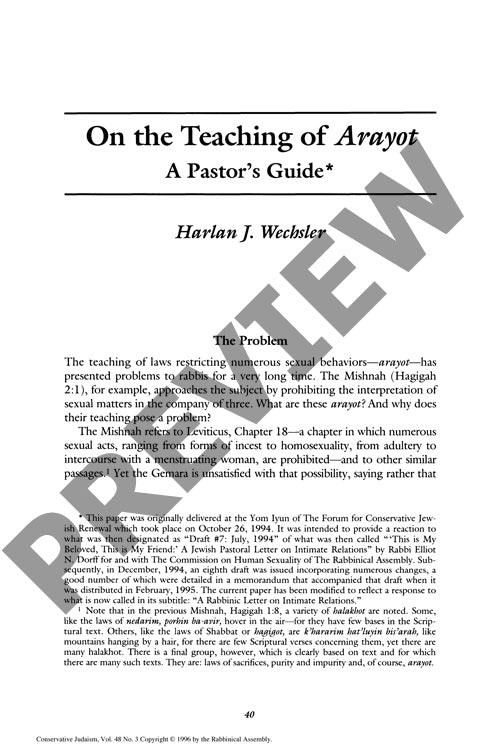On the Teaching of Arayot a Pastors Guid
Couldn't load pickup availability
Teaching sexual laws (arayot) within Conservative Judaism presents a fundamental tension between traditional textual authority and modern interpretive frameworks. When responding to Rabbi Elliot Dorff's influential letter on intimate relations, three contemporary approaches emerge: using love as an ethical measure, applying anthropological insights into ancient practices, and incorporating psychological understanding of sexual orientation. Yet none of these frameworks adequately justifies departing from traditional interpretations of biblical sexual prohibitions, particularly those in Leviticus 18. Through careful analysis of Talmudic sources - which themselves acknowledge the complexities of teaching sexual matters - and examination of modern hermeneutical approaches, the research reveals that scholarly methods cannot definitively determine which explicit biblical laws remain relevant today. Approaches privileging individual fulfillment over communal covenant obligations represent problematic departures from Jewish legal tradition. Sexual morality must continue to emanate from divine authority as understood through traditional textual interpretation, emphasizing the concepts of "forbidden" and "permitted" (issur v'heter) rather than situational ethics. Conservative Judaism would be better served by strengthening established halakhic procedures than by creating alternative decision-making mechanisms.

More Information
-
Physical Description
-
Publication Information
Published 1996
ISBN
-
Publication Credits
Harlan Wechsler

